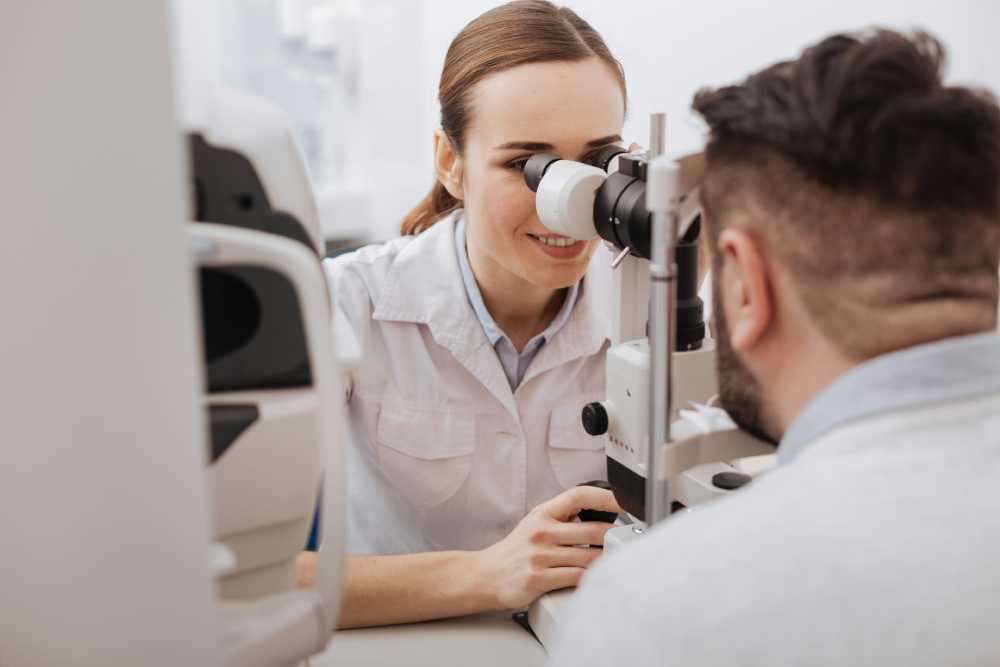Many people think they only need to see an optometrist if they want new eyeglasses. However, an eye exam can detect health complications early on.
A typical eye exam will include tests for near and far vision, 3D vision, and peripheral (side) vision. It will also examine the blood vessels in your eyes for signs of glaucoma.
Preventing Eye Diseases
Regular screenings, like comprehensive dilated eye exams, can prevent many eye diseases. They allow healthcare providers to detect and treat conditions, such as glaucoma (which leads to blindness) and macular degeneration, early. They also help identify several other health problems, including diabetes, high blood pressure, and autoimmune diseases.
Experienced eye doctors in Ottawa can also diagnose problems such as strabismus (crossed eyes), refractive errors (like nearsightedness and farsightedness), and presbyopia (a natural loss of the ability to focus on close objects, typically after age 40). By detecting these issues early and providing treatment, they can reduce vision loss caused by eye disease.
Detecting Vision Problems
While optometrists focus on eyesight and can optimize your prescription, they also detect a wide range of general health problems. During an exam, they get a close-up view of the back of the eye (the retina), and watching blood vessels and nerves for early signs of health issues can provide clues.
For example, glaucoma — the second leading cause of blindness — is detected through tests that measure your eye pressure and examine the optic nerve for damage. An eye exam can also reveal diabetes, in which the retina shows microbleeds and other vascular damage.
Other tests, like the cover test (where your doctor covers one eye at a time) and the binocular vision assessment, determine how well both eyes work together. You may need to dilate your eyes for these tests, making them light-sensitive for a few hours afterward.
Preventing Blindness
Blindness from glaucoma, age-related macular degeneration, and other eye diseases can be prevented by getting regular eye exams. A healthy diet with plenty of leafy greens, kiwi fruits, oranges, and other brightly colored vegetables, zinc, vitamin C, and omega-3 fatty acids can also help. And, of course, avoid exposing your eyes to hazards such as smoking or working with dangerous chemicals.
Optometrists are state-licensed healthcare professionals who examine the eye and visual system. They can detect various eye problems and prescribe and dispense corrective lenses. They may also refer you to an ophthalmologist for more advanced testing or surgery. And ophthalmologists can treat many diseases and conditions that can lead to permanent blindness, such as diabetes-related retinopathy and hypertension-related retinopathy.
Preventing Eye Injury
Eye injuries are usually painful and often involve a sharp object, blunt force, or sudden trauma. Many of these injuries can be prevented by wearing protective glasses or goggles during sports or activities that put the eyes at risk. Wear eye protection while cleaning the house, using chemicals, or doing yard work is also a good idea.
Optometrists are state-licensed healthcare professionals who can diagnose and treat almost all eye diseases. If they suspect that your ocular condition requires more extensive testing or surgery, they will refer you to an ophthalmologist. They are your first stop on the road to ocular health. An ophthalmologist is a medical doctor who has additional advanced training in treating all aspects of the visual and ocular systems.
Correcting Vision Problems
Whether you have refractive errors like nearsightedness, farsightedness, or astigmatism — caused by light not bending correctly as it enters the eye — or need bifocals or contact lenses to see clearly at both distance and close, optometrists can help. They can also care for eye diseases and other health conditions affecting your vision.
During a comprehensive medical eye exam, your doctor of optometry will assess your eyesight by asking you to follow a target. At the same time, they cover and uncover different sections of an eye chart. This assessment can pick up on several other issues, including diabetes, high blood pressure, and autoimmune disease symptoms. They can refer you to an ophthalmologist for more advanced care or surgery.

